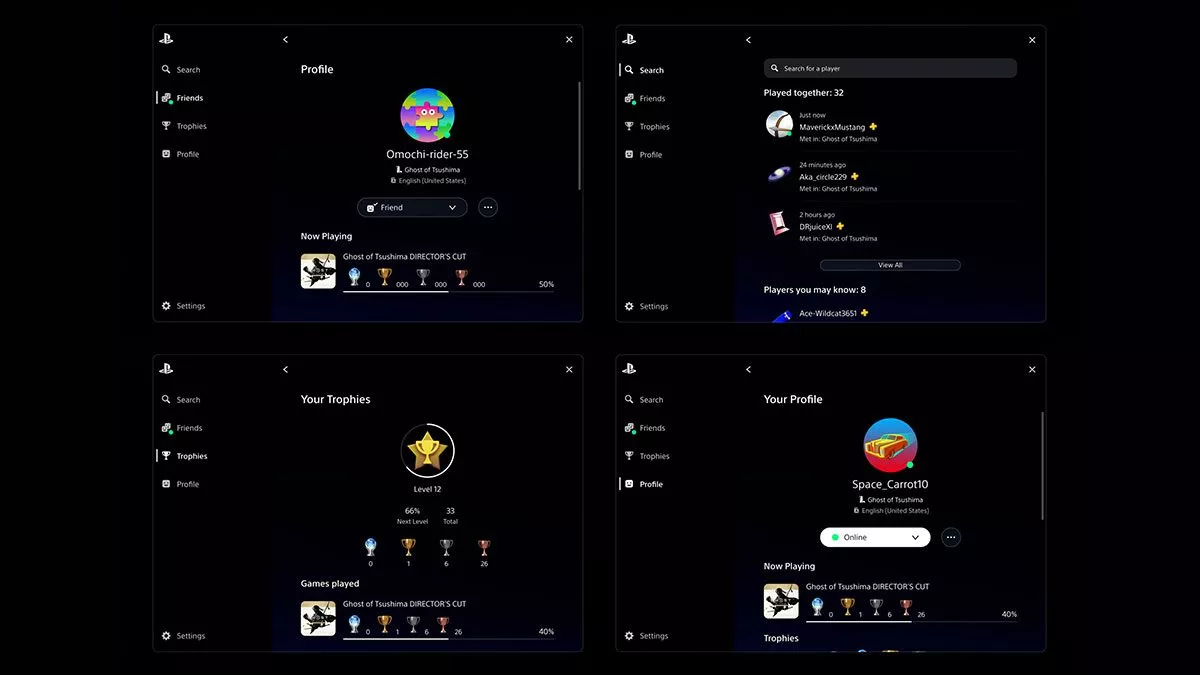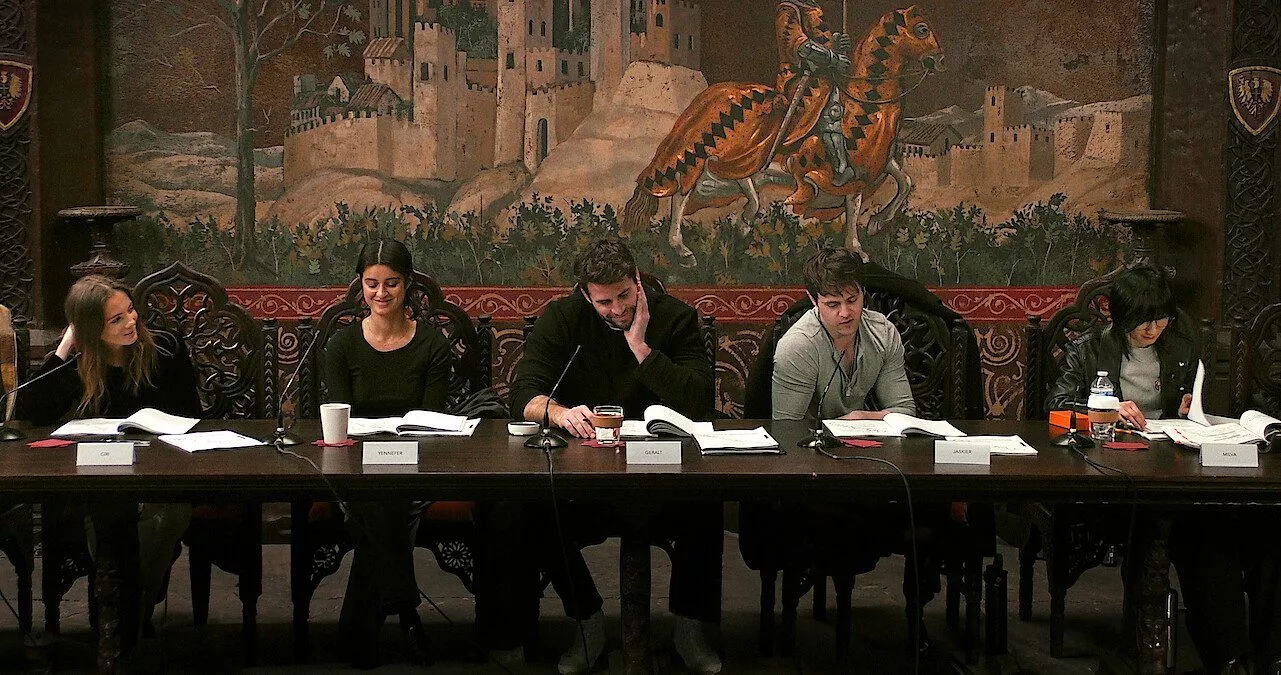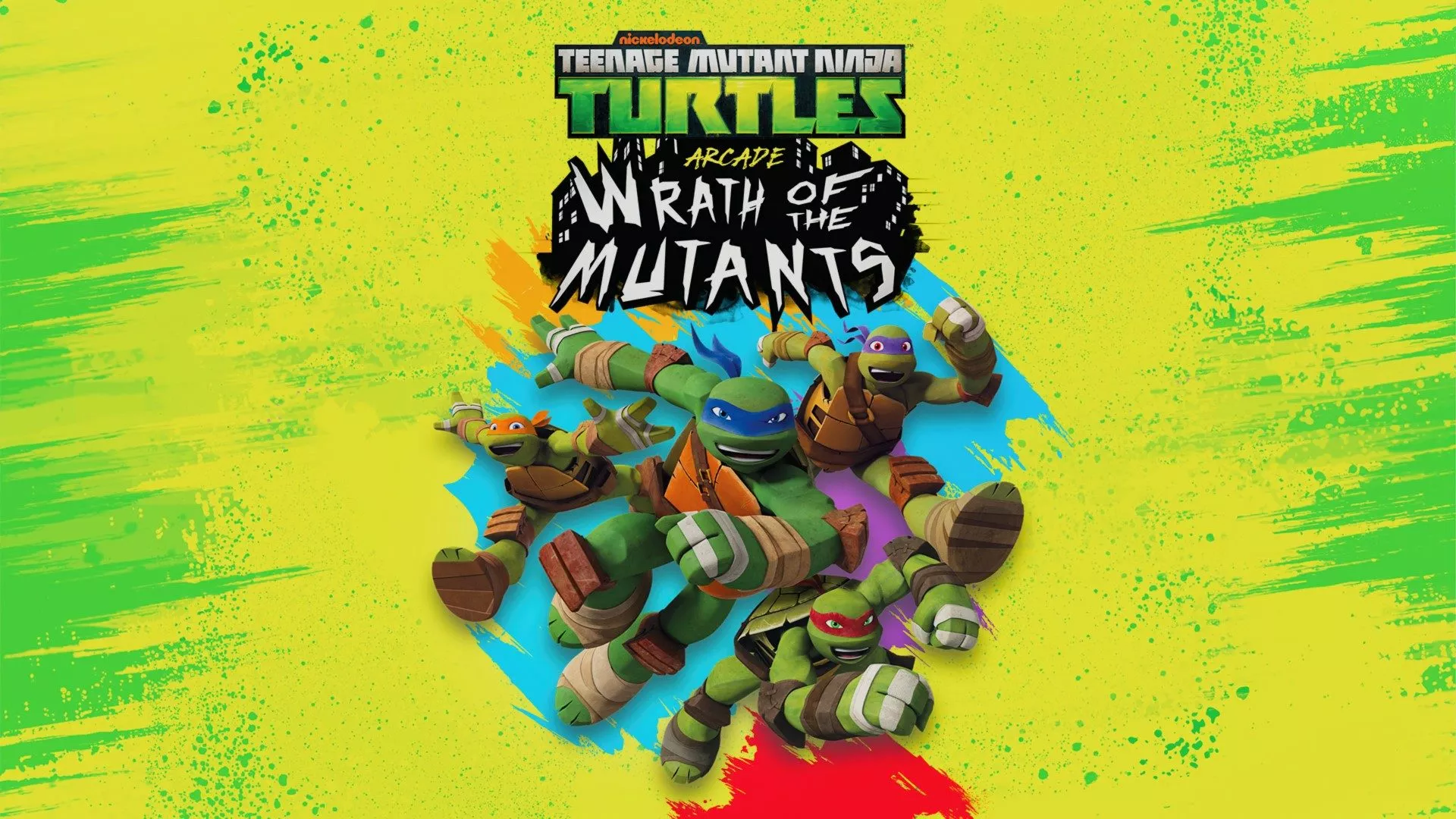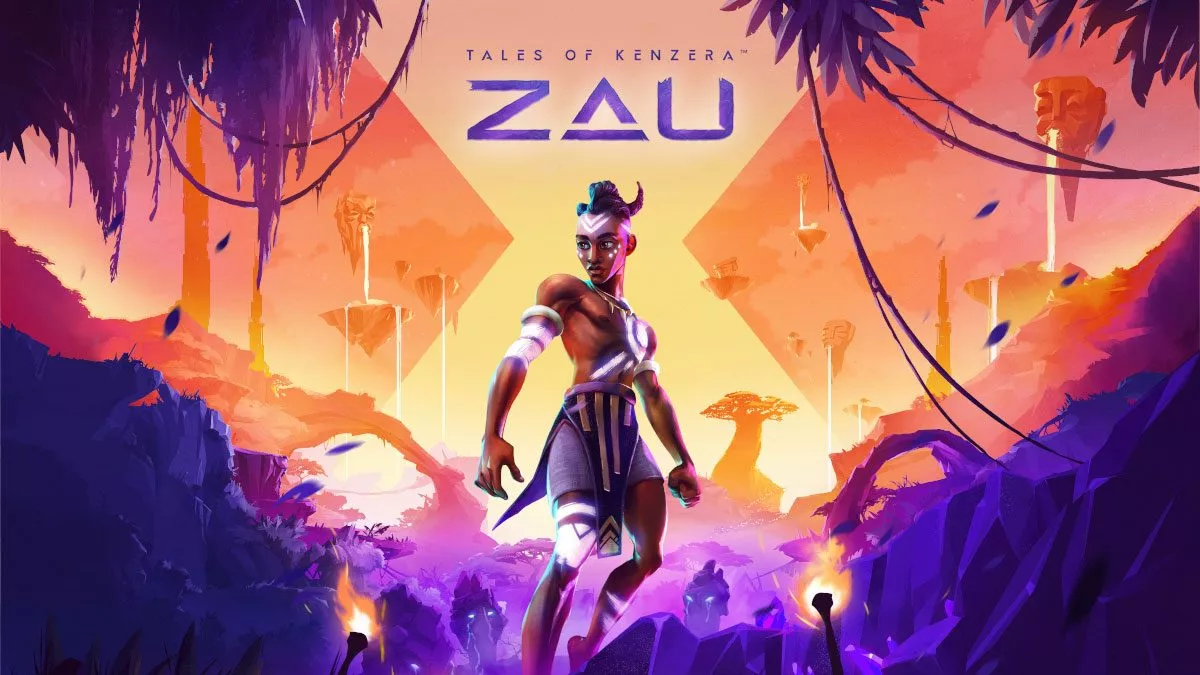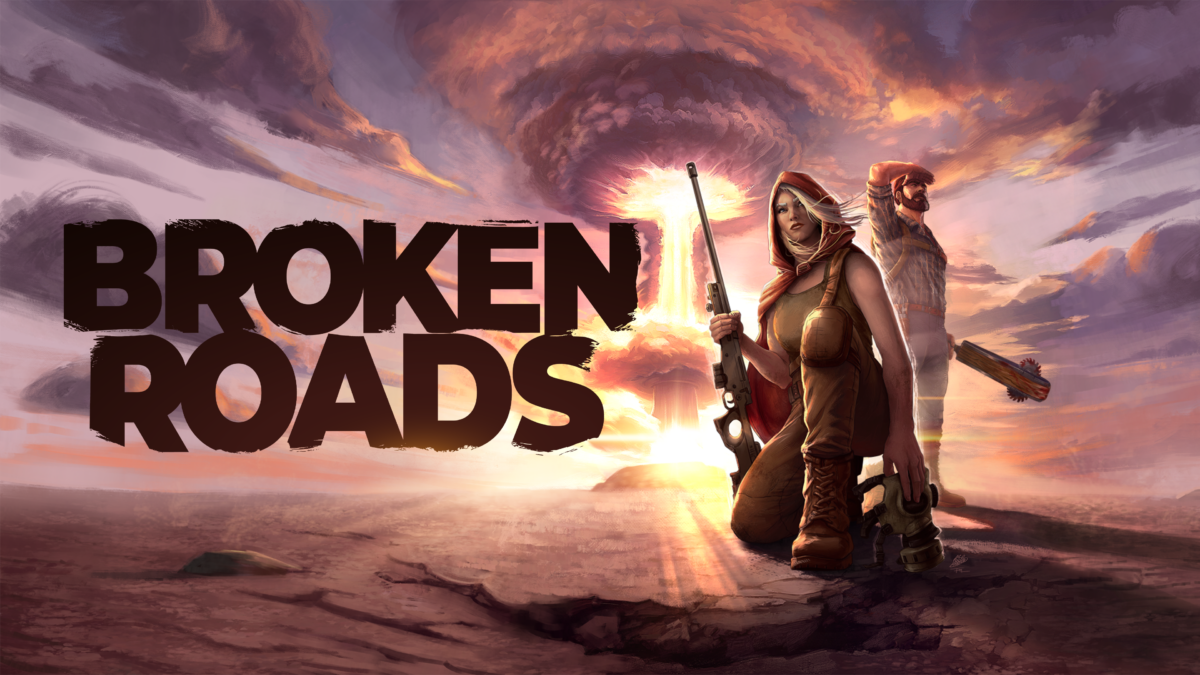Microsoft versus Sony, Battlefield versus Call of Duty and Forza versus Gran Turismo. These are some of the rivalries that can get people talking about console wars. “Game On or Game Over” is your place to get inside the minds of Nicholas and Andy as they seek to find the true meaning of gaming and tackle some of gaming’s most controversial subjects. Both are award winning authors – although the awards haven’t been mailed or created yet — but trust them. Would they lie to you?
Andy: Before I get into this week’s topic I just wanted to thank all of our readers who have been reading our Game On or Game Over articles for the past year. This week’s articles is a small milestone for us, being number 50 that we’ve written. You and I have talked about it, but we’d like to think that this little idea has blossomed rather well. It’s been a fun journey writing these and engaging people in conversations about what we put here in our little corner of the internet. It may sound cliché but we write these for all the gamers out there. We may not always agree on every topic, but the ability to have a conversation about those subjects is one of the things that makes me happy to be a part of the gaming community.
As I talked about above this is our fiftieth article, we’ve covered a myriad of topics and have used one term in virtually every one we’ve written. I’d like to discuss that term this week and see exactly what it means, and maybe get into the mind of others and see if our views are similar or if we disagree on certain elements. We’ve talked a lot about the industry and practices, but we keep mentioning gamers as a part of that. So, to start this week I’d like to get your take on just what a “gamer” is. I’ve seen it said on message boards that “you’re not a real gamer unless you’ve played <insert a game here>” So, before we get into specifics, when you hear the term gamer what comes to your mind?

Nicholas: Absolutely! A massive thank you to everyone who has joined us on this ride over the past year, who have read what we’ve had to say, who have given us feedback and also for providing suggestions on various topics too. Here’s to 50 more articles ahead!
To get on-topic and answer your question though, it’s certainly something that I’ve given some thought towards in the past. I’ve gone through different perspectives on what I’ve considered to be a ‘gamer’ before, but as of this moment, I consider anyone who plays games to be a ‘gamer’. By this, I’m literally referring to any video game – whether they be AAA titles on a home console, an indie game on a PC or even a simple tap-to-play title on a mobile phone. Before mobile gaming (that is, on mobile phones and tablets) really started to gain popularity I used to consider ‘gamers’ as only those who owned a home console/PC that played titles that they bought from retailers, but I think gaming has exploded since then and so too should the definition of what a ‘gamer’ is.
What about you though? Do you have such a wide view of what gamers are too, or do you have a more definite description?
Andy: You know, much like you my definition of what a gamer is has changed over time. I remember when the term ‘gamer’ meant that you went to a local arcade and plunked quarters into your favorite machine with the hopes of getting your initials on the top score leaderboard. I also remember when telling someone you were a gamer was met with an eye roll and shaking of the head because I didn’t have “anything better” to do. I am in agreement though that the term gamer is an inclusive one. It doesn’t matter what game you play, or what platform you play it on. It shouldn’t matter if you play Battlefield or Bejewled, Skyrim or 2048 Puzzle. A game is a game, I think it’s really that simple. Two years ago while my mom was in the hospital, to give her something to do, I bought her a 3DS XL and Bejeweled, Slingo and a Solitaire game. I think she’s played it every day since. The first time I called her a real gamer she shook her head, now she wears that badge with pride.
There are two other views that I want to tackle this week surrounding the term, because both irritate me to no end. It may be different down in your area, but up here in the United States anytime the mainstream media mentions a story about gamers they almost always use one of two stereotypes. First, the 12 year old kid who is a ticking time-bomb due to the violence in games and the impressions they can make on him. Or, the single guy living in a basement chugging Mountain Dew. Mainstream media here doesn’t mention all the good stuff gamers do, or rarely even that there are *gasp* female gamers. They never mention things like the Child’s Play charity, or the Humble Bundle charity donations. It’s all “blame video games” and perpetuating stigmas and stereotypes.
The mainstream media is stuck in the past with their definition of what a gamer is. It’s changed so much over the past twenty plus years, but they just don’t want to see it or admit it, because that wouldn’t make for great stories. A great example is the Dota 2 tournament that happened last week with a total purse of over $10 million and yet I haven’t seen anything on the big stations about that up here. Is Australia’s media the same way? Excluding those sites, like Stevivor, that cover games, do any of your mainstream media stations ever have any positive game coverage, or are they like the American media where the only way games get mentioned is if there is a mass shooting or similar event?

Nicholas: Admittedly mass shootings aren’t as common an occurrence in Australia as they appear to be in the States, but the portrayal of gaming and gamers is much the same between the two. I could go on a massive tangent about how backwards and out-of-touch the media are, but we’ll keep it gaming-related. Occasionally you’ll see a story like EB Games working with the Starlight Foundation to host a charity event, but coverage on stories like this are few and far between. In comparison, it was only last week that I was watching a news story (perhaps I should write “news” story) that was discussing gaming addiction and all the horrible things playing games for too long could do. It had kids sitting in-front of a computer or holding tablets, footage from Minecraft, and so-called ‘experts’ talking about the perils that the youth might face if parents aren’t monitoring their children’s play-time. Don’t play games all day – no, don’t do one thing in particular all day – seems kind of self-explanatory to me.
Occasionally you’ll have familiar faces from the Australian gaming scene interviewed for their opinions, but it always seems so ridiculous and out of place. From and insider looking out, the media always treat games like, dare I say it? Noobs. Going back to my point above though, these news outlets are out-of-touch on a lot of things and it’s just unfortunate that gaming is a part of that list.
Moving on though, above we spoke about how our idea of a ‘gamer’ was fairly inclusive, yet there are some people out there who aren’t so accepting. There are some people who think that being a ‘gamer’ takes more than merely playing games. What are your thoughts towards those people, and why do you think they have the views that they do? Is there any merit in where they are coming from?
Andy: The gaming community is a weird beast isn’t it? I think we have all heard someone say, “they aren’t a real gamer because…” I remember people saying that to me in arcades when I was spending the majority of my time playing pinball machines. “Dude, play a real game!” So, maybe we need to go backwards a little here and define what a “game” is. I’m not really sure if there is a good solid definition of what a game is. There are so many different types of games from social to competitive, from hardcore to casual, that picking one definition will invariably leave something out. So I think my definition would be if you ask someone “Have you played…” then it’s probably a game.
There is a segment of gamers that try to make being a gamer seem like this super exclusive club that only a select few can be a part of. They have this whole ‘dude bro’ mentality that they are the ones that get to pick what real games are. I play a wide array of games from FPS to racers, but I also play a lot of Pinball FX2. Heck, I own pinball games on four different platforms – does that make me less of a gamer? I don’t think so. What about something like The Walking Dead from Telltale Games. I’ve heard from people that it’s not a real game because you don’t do anything except hit buttons. I’d argue that the same thing can be said about every game.
So, the media tries to stereotype who games are, and gamers try to stereotype what real games are. It seems that society as a whole looks for ways to exclude at every chance they get. Yet, the very idea of playing video games is social in nature, some of the best games out there are played with friends. Whether it be multiplayer in an FPS game, racing against friends, or playing a campaign with a mate. We haven’t even talked about leaderboards and trying to best our friends’ scores or times. In my opinion, the gaming community should look to be more inclusive and accepting of all types of games and systems. That’s one thing about all the conventions that surround gaming now. They are inclusive and welcome the AAA games as well as the small Indie games. What do you think the reason is for people who want being a gamer to be an exclusive thing? In many ways it almost seems like a version of the console wars between Sony and Microsoft. If you could play the devil’s advocate here, what do you think the reason is behind some gamers wanting that exclusivity versus being inclusive and expanding everyone’s options?
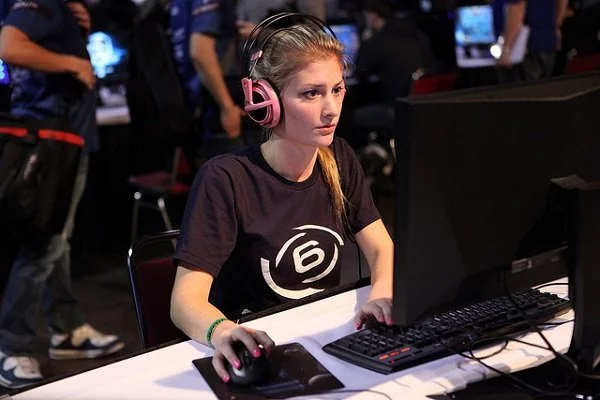
Nicholas: I believe it all stems down from the fact that up until recently, gaming wasn’t cool. Socially, being a gamer was always met with being somewhat of an outcast – the stereotypes of being unattractive, having no friends and living in your parent’s basement. When the push to make gaming more inclusive started to take hold (with companies like Xbox using celebrities to promote the Kinect and their fitness programs or Nintendo tapping into the household market with the Wii), people started to realize that it was no longer just about playing World of Warcraft and Dungeons and Dragons, but a massive and diverse market with games and products to suit a whole range of people and lifestyles.
So for some, it was ‘cool’ to be a gamer because it wasn’t socially accepted. Now that it is though, people might feel they’re losing that exclusivity. At the end of the day though, it’s completely ridiculous to think that being a gamer is now ‘less cool’ because there are more people doing it. Whether you play games or not, whether you play on a home console or an iPhone – who cares as long as you’re having fun, right? It does seem somewhat opposite to be upset that there are more people out there who enjoy your passion. For example, I love when I find more people who are fans of rotary engines. The more the merrier.
You discussed the definition of a ‘game’ before, and I think this is a really cool question. As far as I’m concerned, if it’s something that’s interactive where you provide some form of input, then it’s a game. It doesn’t matter whether the level of interactivity is as minor as point-and-click or as massive as controlling an individual in an open world, or if the input is made via a controller or voice, if those two criteria are met, it’s a game. Some games are educational like Mario is Missing and some are like Wolfenstein: The New Order which is nothing but a fun OTT shooter – both are games.
What are your thoughts of the whole ‘hardcore’ vs. ‘casual’ gamer debate? Is there anything wrong with people wanting to make a distinction between the two, and which would you say you belong to (if you had to choose) and why?
Andy: I am going to go on a little tangent here, so apologies for the rambling. I will admit that at times when I create a topic I have a pretty good idea of what we will talk about, and can usually guess some of the main points we will hit on. Even though we generally don’t discuss topics beforehand, or know what each other is going to say. It’s a really cool moment though, when you take a topic and say something that I’ve overlooked or never really considered. It’s one of the many reasons I truly enjoy writing these. That and the worldwide fame we have garnered. Hey, I’m in America and you’re in Australia… that’s worldwide it counts!
With that said I think you’re spot-on when you mention that it’s ‘cool’ to be a gamer because it wasn’t really socially accepted, and now that it is widely accepted people still want to carve out their own ‘exclusive’ club where they make the rules. That seems to be a theme with many things of the gaming community, certain groups/factions try to make their own rules in order to build up what they like/play while at the same time knocking all those other things that aren’t the same as their tastes. There is really an overabundance of examples to back that up; Call of Duty vs Battlefield, Forza vs Gran Tursimo, Xbox vs PlayStation, consoles vs PC, the list really goes on and on. Maybe the whole issue of being a fanboy isn’t so much of sticking up for what you love, but maybe putting more energy into hating what you don’t like. It’s certainly an interesting paradigm shift.
If you would have asked me at the onset if I was more of a hardcore gamer or a casual gamer, without hesitation I would have said hardcore for sure. I could have talked about my Achievement score, the number of collectibles I own, the number of unplayed games on my Steam account and the number of dogs I have named after video game characters. Yet, when I sit here and think about it now I think I have the perfect definition for what kind of gamer I am. I am a hardcore casual gamer. I don’t play in MLG events, but I love competing against my friends scores (Hi Dave, nice pinball scores you have there… so tiny), I don’t rage when I do poorly in an online FPS game, but I love shooting my friends in the face with a rocket (Hi Willie). I’ve never been to a gaming convention, but it’s pure joy when I best a friends time in Need for Speed (meep meep Noel). I don’t think there is anything wrong with people wanting to call themselves either or because at the end of the day, whether you are hardcore or casual you still finish the phrase with gamer.
It seems engrained in the gaming culture that if you like one thing you can’t like another, and that sometimes we unintentionally segregate ourselves around those things. We need to be less worried about what others are doing and just focus on having fun, because that’s why we spends hundreds of dollars (thousands if you live in Australia) on video games, consoles, monitors and new parts for our PCs, collectibles and everything in between. Because there is an overwhelming warm fuzzie fun to it. We have memories and experiences from those games and aside from talking about dogs, I love finding someone that can talk about those same things. I love the sense of community and shared experiences we all have, it doesn’t matter if we are hardcore or casual, we all play the same games in the end. Before I ramble too much here, and to wrap up this week’s article, what are your thoughts on the whole hardcore vs casual argument? At the end of the day does it really matter?
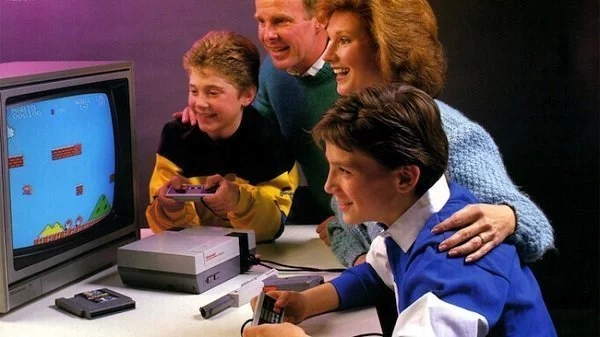
Nicholas: When I asked the question of whether you were a hardcore or casual gamer, I took some time to really reflect on what that question meant to me too. I’ve thought about it in the past, and there were times when I would have certainly considered myself ‘hardcore’. Like you, I’ve never been a competitive gamer, but I would have considered that participating on gaming forums daily, writing about games online and playing them each weekend would certainly have fit the bill. Then I thought about where I am now. With the weekend that just past, I maybe spent about 2 hours all up playing through some chapters in Wolfenstein The New Order. The week before that, perhaps the same amount if not slightly more. There have been times though when I’ve not picked up a controller for over a fortnight – not because I was particularly busy, but because I just wasn’t interested. It made me think – while I’m certainly still a gamer, I’m no-where near as enthralled in it as I used to be.
And that’s not a bad thing.
As I said, I’m still a gamer, even if just a ‘casual’ one. For me, this is the entire point, and to answer your final question, no, I don’t think it does. In the entire scheme of things, it doesn’t matter if you’re a hardcore or a casual gamer. It doesn’t matter if you play professionally, competitively with friends or alone. It also doesn’t matter if you play on a $3000 gaming PC or an iPhone that your eldest sibling gave you when she upgraded to the new iPhone 5S. To even remotely think for a second that it matters how much of a ‘gamer’ we might be is laughable, because being a gamer should only revolve around people sharing a similar interest and nothing more. I can completely understand that some people want to affiliate themselves as being more interested in gaming than others – and that’s fine, but to say that it makes someone more (or less) of a gamer, well that’s where I say “game over” to that argument.
A special thanks to Bobby Loertscher for the suggestion behind this week’s topic!
Tune in next time for the next instalment of Game On or Game Over. If you have any ideas for our next article, feel free to contact Andy or Nicholas on Twitter.
This article may contain affiliate links, meaning we could earn a small commission if you click-through and make a purchase. Stevivor is an independent outlet and our journalism is in no way influenced by any advertiser or commercial initiative.




